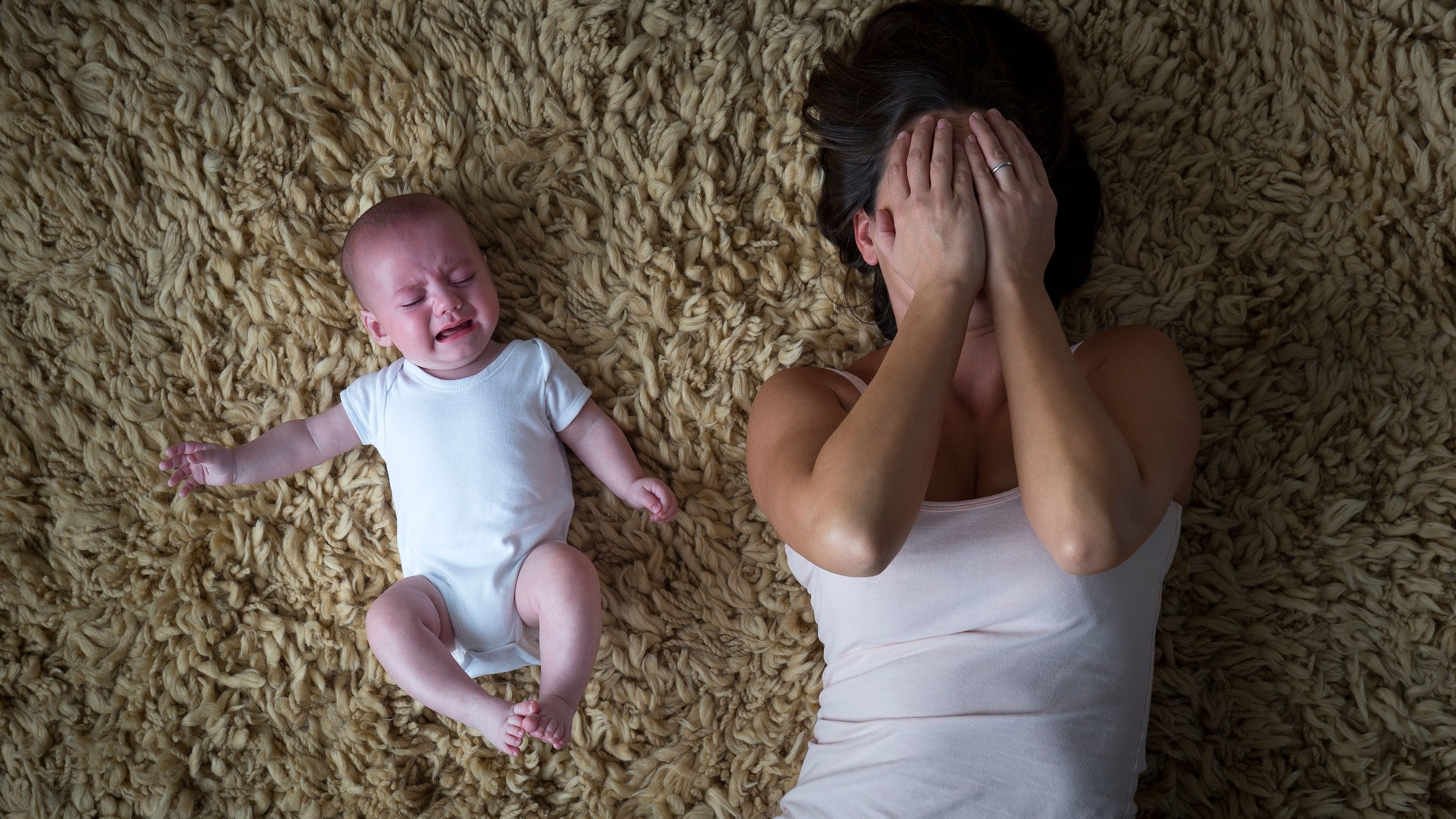
Image for representation.
Credit: iStock Photo
In a modest apartment in New Delhi, Sasha Ghose cradles her newborn while grappling with mounting bills. The joy of motherhood is overshadowed by financial instability and a lack of support, leading her to experience postpartum depression (PPD). “It felt like the weight of the world was on my shoulders,” she reflects.
PPD is typically linked to hormonal changes after childbirth, but this perspective overlooks the broader socioeconomic factors at play. Ghose emphasises, “the real challenge is the lack of emotional and practical support that could alleviate some of this burden.”
The World Health Organisation (WHO) defines postpartum depression as a serious mental health condition characterised by extreme sadness, fatigue, anxiety, and difficulty bonding with the baby. It can begin days or weeks after delivery and, if untreated, may last for months. The WHO stresses the need for appropriate medical and psychological support to ensure maternal and child well-being.
Economic pressures
A 2024 study in the Indian Journal of Psychiatry revealed that about 50% of women with PPD cite financial instability as a major contributing factor. Economic stress significantly complicates recovery, with new mothers in lower socioeconomic brackets being up to 11 times more likely to experience PPD than their higher-status counterparts.
Madhukar Rai, an analyst from the Sardar Patel Institute of Public Administration, notes that many women work in the unorganised sector without maternity leave or basic protections, intensifying economic stress. Women in the formal workforce often face systemic pressures that hinder prioritising mental health. This highlights the urgent need for policies addressing financial insecurity and integrating mental health support into workplace practices.
A 2024 survey by the Centre for Health and Social Justice found that 55% of women in the informal sector returned to work within three months of childbirth, often due to inadequate maternity leave. This premature return correlates with higher stress levels and increased PPD incidence.
Social support networks
Social support is crucial in mitigating depression, but it’s often lacking in lower socioeconomic environments. Single mothers face limited resources and emotional support, leaving them isolated and overwhelmed. Dr Pushpesh Kumar from the University of Hyderabad highlights that stigma around mental health further alienates women in marginalised communities, making it difficult to seek help.
Untreated PPD can lead to long-term consequences for both mother and child. Dr Kumar notes that without sufficient help from family and friends, feelings of isolation intensify. Cultural expectations around motherhood can exacerbate feelings of inadequacy, discouraging women from seeking assistance.
The rise of IVF treatments has also increased PPD risk, as the emotional and financial toll of fertility journeys can leave new mothers more vulnerable. Dr Sheetal Jindal from Jindal IVF Chandigarh notes that many couples enter the postpartum period already mentally drained.
Inadequate government response
Seema Bhaskaran from Transform Rural India highlights the complex link between government support and maternal mental health. Women with PPD often struggle to form affectionate bonds with their children, which can affect cognitive development. Current reproductive health policies inadequately involve men and families in prenatal and postnatal care. Women often receive minimal support despite government schemes like the Pradhan Mantri Matru Vandana Yojana (PMMVY) and Janani Suraksha Yojana (JSY), which focus more on physical health.
Dr Shaibya Saldanha, a gynaecologist in Bengaluru, argues that these programmes primarily address physical health, neglecting the psychological challenges mothers face. PPD often goes unrecognised and untreated because mental health services are not integrated into maternal care.